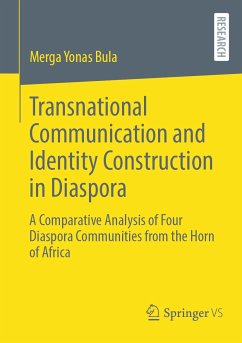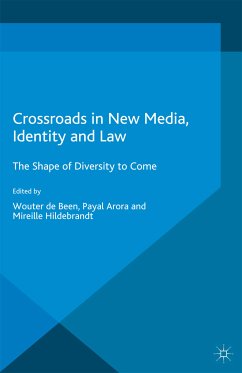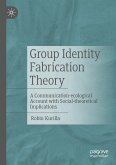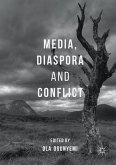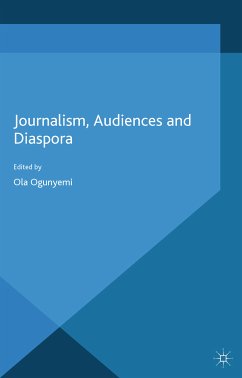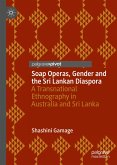The study was sparked by the absence of literature on transnational masspersonal communication (tmc) of 'Eritrean', 'Ethiopian', Oromo, and Somali diaspora communities. To bridge this theoretical gap, an empirical study was conducted at meso-level based on three questions: (a) what topics do people in the diaspora communities discuss in relation to their homelands via social media - an alternative for tmc; (b) how do they communicate about their homelands' issues in relation to their collective identities; and (c) how does this communication enable the construction of their own identity as well as the deconstruction of competing identities. The theoretical analysis from the perspective of these questions led to developing own model, i.e., the Diasporic Identity Construction in Transnational Masspersonal Communication Model (DICTMCM). This model, which connects the theoretical analysis to the empirical study, argues that their communication in relation to their homelands, particularly about their collective identities, consists not only of what they talk but also of how they converse. As a result, the empirical results delivered a comparative analysis of the tmc of these four diaspora communities and how they construct their collective identities via this tmc, which bridged the above stated gap.
About the author
Merga Yonas Bula is a media and communication expert and freelance journalist based in Bonn, Germany.
Dieser Download kann aus rechtlichen Gründen nur mit Rechnungsadresse in A, B, BG, CY, CZ, D, DK, EW, E, FIN, F, GR, HR, H, IRL, I, LT, L, LR, M, NL, PL, P, R, S, SLO, SK ausgeliefert werden.

